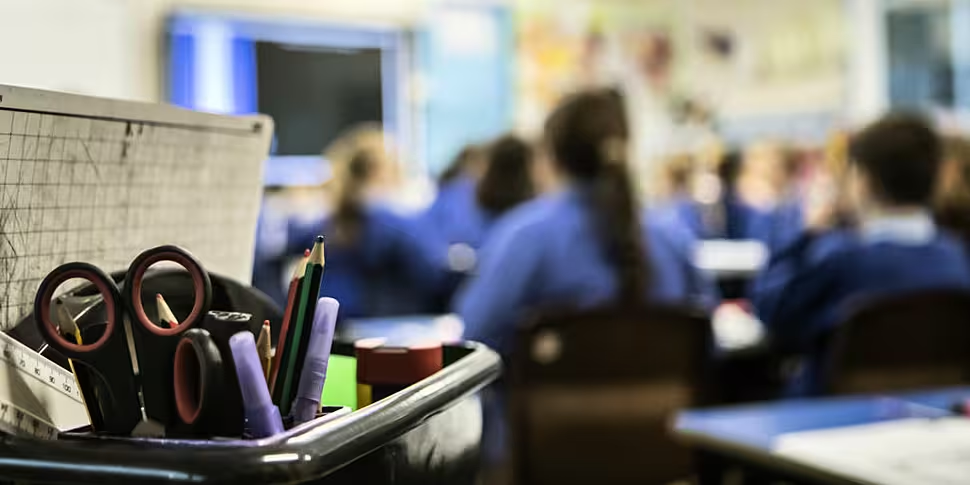It's unlikely that primary school children will be able to return to large class groups in September, according to the general secretary of the country's largest teachers' union.
From Monday, teachers will be allowed limited access to school buildings in order to facilitate remote learning.
However, health officials are not expected to allow schoolchildren to go back before the summer break - instead sticking to the roadmap plan of allowing schools reopen in September.
Speaking on Newstalk Breakfast with Susan Keogh, INTO General Secretary John Boyle said it's unlikely schools will be back to normal at the start of the new school year.
Mr Boyle observed: "I don't think anybody really believes the schools will go back the way they were six weeks ago.
"I cannot imagine that children will return in primary the way they were on 12th March, with 30 children in a class - very often a small classroom.
"The chances are that all the children, initially anyway, will not be back together in the one group.
"That's going to pose very, very big challenges for the parents, for the children themselves, and for their teachers."
He suggested it would be "fairly trying and challenging" for teachers to attempt to teach half a class remotely and half in person.
He also said one option would be for large classes to be split - half in the morning and the other half in the afternoon - when schools do return.
However, he stressed that public health advice will ultimately determine how social distancing will work in classrooms, playgrounds and school corridors.
On the prospect of teachers wearing masks or face coverings, he explained: "That's definitely something that will be under consideration.
"In our submission [to Government], we felt that if the public health advice was recommending that PPE was to be worn by either students or teachers... that would have to be delivered to schools centrally.
"We're really, really keen that whatever guidance comes out from these discussions, that schools won't be left to their own devices or competing with each other to try and get such materials."
Mr Boyle said the biggest change he'd like to see in the future is in terms of class sizes.
He said: "I think there's a warning in this... if there were to be any future challenges like this, the smaller the class the easier it is to manage.
"Hopefully that will be the one big change - that we'll get down to the European average of 20:1."









